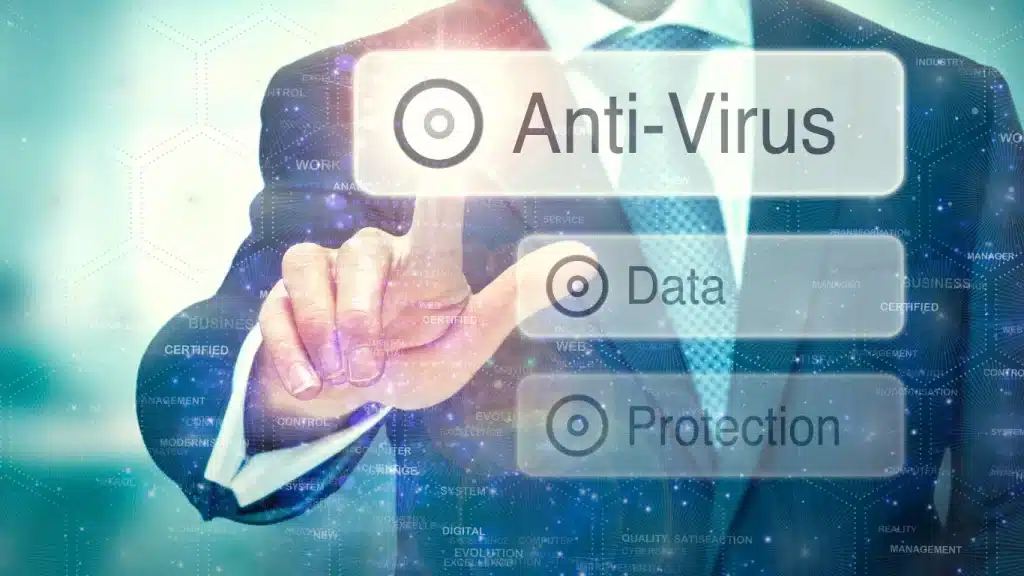Have you ever asked yourself how your computer keeps itself safe from the myriad of threats lurking in the digital world? The answer lies in the heart of your security solution: the antivirus software. What is antivirus? Antivirus software are programs designed to prevent, detect, and extract malware and other malicious software like computer viruses, worms, and Trojans.
Malware, short for malicious software, encompasses any software focusing on damaging or disabling computers and computer systems. Malware ranges from viruses spyware and can include other harmful things like worms, Trojans, and ransomware. Today, malware is becoming increasingly sophisticated, and it’s essential to understand how it functions to protect your computer and your data better.
Types of Malware
Digital threats are the types of malware that can corrupt your computer; they come in vast and varied forms. Computer viruses are the most well-known type of malware. Computer viruses have the ability to spread from host to host and can replicate themselves. Worms, on the other hand, exploit security holes to spread themselves automatically to other computers through networks.
Spyware spies on you, tracks your internet activities, and captures your personal information. This could include credit card numbers, passwords, and other sensitive data. Another type of harmful software is ransomware, which encrypts your files and charges a fee in exchange for the decryption key. Adware, though less dangerous, bombards you with unwanted ads and can slow down your computer.
How does Malware affect your computer?
Malware can have several impacts on your computer. It can slow down your system, delete or corrupt files, steal sensitive information, or even take over your system’s operations. Malware can also use your computer to spread itself to other computers or launch attacks on networks or websites. Malware often infiltrates your computer through email attachments, software downloads, operating system vulnerabilities, and visiting infected websites. Once it’s on your computer, it can be difficult to remove, often hiding itself and changing your system to stay undetected.
The role of Antivirus Software in removing Malware
Antivirus protection software is crucial in helping remove malware from your computer. It scans your system for known threats based on a database of identified malware. It can also use heuristic analysis to detect new, unknown threats based on their behaviour or code patterns. Once a threat is found, the software antivirus program isolates and removes the malware, preventing it from causing further damage. Some antivirus software program includes features like firewalls and email protection to help prevent malware from getting onto your computer in the first place.
How Antivirus Software work to detect and remove Malware?

Antivirus software uses several strategies to detect and remove malware. One of the primary ways is through signature-based detection. This involves identifying malware based on a unique set of characteristics or ‘signature’. These signatures are kept in a database, which the antivirus software compares files against to identify threats.
Another method is heuristic-based detection, which identifies malware based on its behaviour or characteristics. This is particularly useful for detecting previously unknown threats. Finally, there’s sandboxing, where suspicious programs work in an isolated environment to see if they suspect malicious behaviour.
Exploring different Antivirus Solutions
The market is full of antivirus solutions, each with strengths and weaknesses.
Windows Defender, for instance, is a free antivirus program included with Windows 10 and offers real-time protection against various threats. Security solutions from Google Play, like Bitdefender Antivirus, Avast Mobile Security, and McAfee Mobile Security, offer excellent protection for Android devices, with features like malware scanning, privacy tools, anti-theft, and more.
What is the role of Machine Learning in Antivirus Software?

Machine learning is becoming increasingly important in antivirus software. It allows the software to improve its detection capabilities over time, learning from previous encounters with malware. By analysing malware’s features and behaviours, machine learning algorithms can create predictive models that can identify new malware threats, even if they’ve never been seen.
Understanding Viruses and Spyware
When antivirus software runs checks, it scans your computer’s files and directories for any signs of viruses or spyware. These scans can be quick, checking critical areas like your system memory and auto-run entries, or complete, checking every single file on your computer. If a file matches a virus or spyware signature in the antivirus software’s database or exhibits suspicious behaviour, the software will flag it as a threat. Depending on your settings, the software may automatically quarantine or remove the threat or ask you for instructions.
The Importance of Antivirus Software
Connecting to the internet without antivirus software is like leaving your front door open for thieves. Antivirus software is crucial for safe internet use, helping to block malicious codes and attacks before they can reach your computer. Antivirus software also helps to protect your privacy online, preventing spyware from collecting your personal information. And for those who shop or bank online, antivirus software can keep you away from phishing attacks and various other scams developed to steal your financial information.
The risk of false positives in Antivirus Software
Like any software, antivirus programs aren’t perfect. Sometimes, they might identify a harmless file as a threat – a false positive. While this is certainly better than missing an actual threat (a false negative), false positives can still be a nuisance, leading to unnecessary alerts or even causing a safe program to stop working.
The role of Antivirus Companies in providing Security Software
Antivirus companies are critical in providing security software that enables users to protect their devices from malware. They continually monitor the digital landscape for new threats, regularly updating their software’s signature databases to ensure users are protected against the latest malware.
These companies also invest in research and development to improve their detection algorithms and incorporate new technologies like machine learning. They aim to stay one step ahead of cybercriminals and provide users with the best protection against malware.
The comprehensive nature of Antivirus Software protection
Antivirus software protection is comprehensive, covering multiple aspects of your digital life. Aside from providing real-time protection against viruses, worms, trojans, ransomware, and spyware, it offers security against phishing attacks, spam, and other threats. Many antivirus solutions include additional features like parental controls, a VPN for secure browsing, a password manager, and more. These features all contribute to a more secure online experience, protecting your device, personal information, and privacy.
Exploring Identity Theft Protection in Antivirus Software

With the rise in identity theft, many antivirus solutions now include identity theft protection. This feature helps protect your personal information from being stolen and used fraudulently. It may consist of monitoring your credit and public records, alerting you to any changes, and providing assistance if you experience identity theft.
Conclusion – What is Antivirus?
In the digital age, protecting against malicious software is more important than ever. Malware poses a significant threat to our computers and our personal information, but with a good antivirus solution, you can surf the web with peace of mind. Remember, the best defence against malware is prevention. Keep your antivirus software updated, be mindful of the websites you open and the files you download, and always ensure your operating system and applications are up-to-date. Stay safe out there!





